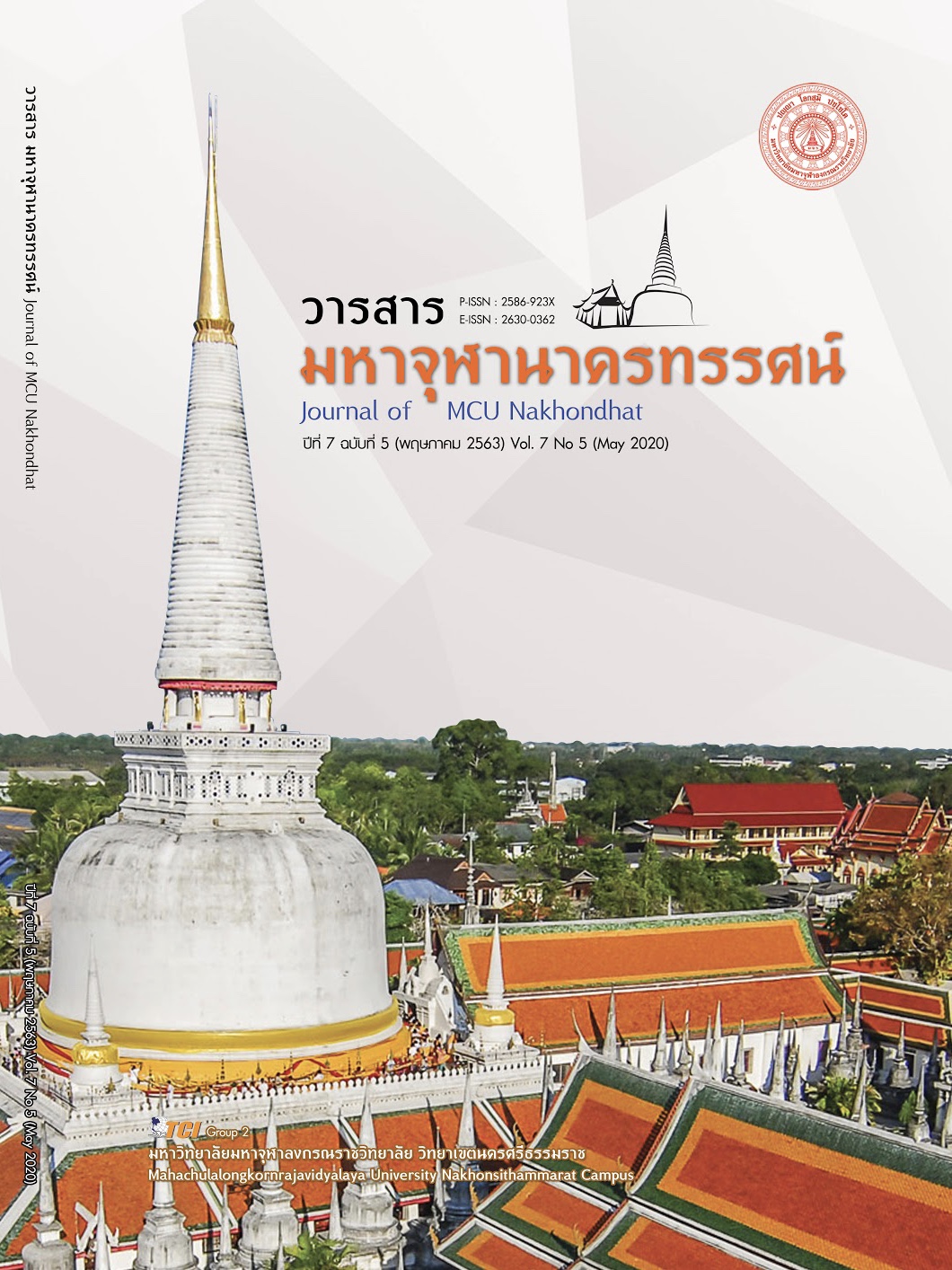NINE KEYS PHILOSOPHY FOR HUMAN RESOURCE DEVELOPMENT BY PALANGJIT DHAMMA JAKRAWAN INSTITUTE
Main Article Content
Abstract
The Nine Key Philosophy has gone through the process of seeking truth from those who are mentally suffering. Social humans have different basic needs. But the important thing is how to respond to that need. The Nine Key Philosophy that can be applied to humans who want to live a perfect life. Because through and discovery of truth from human suffering Therefore, each key is used in different situations. Each situation may use many of the nine key philosophies. But the ultimate result of philosophy is "The perfect human development" is the development of the mind and wisdom. Including self – development to have leadership potential Have kindness to humans together and is a self – development practice because of the nine key philosophies, others cannot use them. Because humans are more aware of themselves than others Therefore, the Nine Key Philosophy is another way to help and release the heart. In order not to cause problems for society and the nation and is a response to the government policy in the 20 – year strategic plan that focuses on the development of human capital to have morality, ethics and a perfect human being.
Article Details
References
พระธรรมปิฎก (ป.อ. ปยุตฺโต). (2544). พุทธธรรม. กรุงเทพมหานคร: สำนักพิมพ์ ธรรมสภา.
พระมหาถาวร ถาวรเมธี และคณะ. (2558). แนวคิดการพัฒนามนุษย์ในพระพุทธศาสนา จากคัมภีร์ทีหนิกาย. วารสารศึกษาศาสตร์ มหาวิทยาลัยนเรศวร, 17(2), 43.
พระราชวรมุนี (ประยูร ธมฺมจิตโต). (2540). ปรัชญากรีก บ่อเกิดภูมิปัญญาตะวันตก. กรุงเทพมหานคร: สำนักพิมพ์สยาม.
วัชระ งามจิตรเจริญ. (2560). ปรัชญา ศาสนา เทววิทยาและวิทยาศาสตร์. วารสาร มจร พุทธศาสตร์ปริทรรศน์, 1(1), 11.
สถิต วงศ์สวรรค์. (2540). ปรัชญาเบื้องต้น. กรุงเทพมหานคร: อักษรพิทยา.
อเนก สุวรรณบัณฑิต. (2560). ปรัชญาจิตวิทยา. กรุงเทพมหานคร: อำนวยการพิมพ์.
Florida state university. (2562). What is philosophy. Retrieved April 2, 2563, from https://philosophy.fsu.edu/undergraduate-study/why-philosophy/What-is-Philosophy


